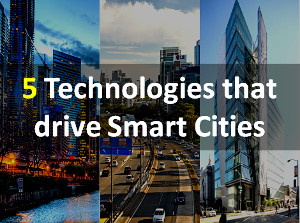How Complex Technology is Leading to Simpler Cars
Autonomous cars may be the way of the future, but that future may be a long way off, according to industry experts. Most automakers have people and processes in place that have designed cars for decades, and their systems are ingrained in the very fabric of the company itself. To overhaul their design and include many of the self-driving or software based capabilities that today's consumers demand, it will take a huge shift in mindset.
Software vs. Hardware
Traditionally, automakers have been dominated by a hardware-first mentality. It makes sense, considering all of the engineerings that goes into designing the machine itself, but next-generation automakers like Tesla have shown that a software-first way of thinking is the way of the future.
Case in point: when Hurricane Irma hit Florida in the fall of 2017, Tesla provided a lesson in customer service by wirelessly extending every affected Tesla owner's battery life to allow for an easier commute out of the impacted zones. They accomplished through the same resources they use in providing automatic updates to their customers: through the cloud. Traditional automakers were unable to do anything.
One of the biggest hurdles to accomplishing a software-first mindset is in the architecture of the car itself. Automakers have constructed their cars on the same relative hardware components for years; a complete redesign not only requires redesigned factories but also a new way of thinking. Automakers like Tesla have a distinct advantage of starting fresh.
Upgrades on Command
Cars of the future will have one distinct advantage over the cars of the present day: the ability to modify or fix components on demand. Getting a car title loan can become more difficult. Similar to the way that computer companies fix glitches and provide system updates to their customers via the internet, future automakers will have the ability to enable functions remotely.
As it stands, every new generation of a particular car embodies the advantages and tweaks of the cars from times past, and once that car is off the lot, there's nothing they can do until the car is on-site again. Moreover, with autonomous driving in the not-so-distant future, a fully-compatible software-based car will allow the manufacturer to enable autonomous features on the car remotely, with minimal inconvenience to the consumer. Not only are automakers thinking about the abilities of their cars now, but years down the road as well.
Shift in Mindset
Car factories are laid out in basically the same type of departments: powertrain, electricity, transmission, etc. Once a company begins to embrace software-based functionality, many of these different departments will blur, with a program handling all or most of these different functions.
The shift in factory layout will reflect a shift in company culture as well. Automakers will rely heavily on outside talent to help them adapt to a shifting world, developing the software and systems in a "silicon-valley" type of way.
Ford is leading the charge in this space, making moves to acquire companies that are developing autonomous and software-based vehicles, such as Argo AI and Autonomic Technologies. Both Ford and Tesla are hiring people away from one of the tech giants of the last 100 years - Apple - in order to bolster their understanding of the digital sphere. Conversely, Apple is hiring automaker veterans from big car manufacturers in their own pursuit to build the next-generation car.
All of this shifting in technologies and mindsets comes at a great cost to the automakers themselves, many of whom have had to stake years of future development away from their bread-and-butter vehicles to double down on an autonomous future. They'll look to cut costs from the implementation of these new technologies into their cars - a challenge in its own right.
Moreover, traditional automakers will have to work fast in order to keep up. Companies like Tesla are popping up all over the place, flush with investor cash and filled with fantastic ideas about the future of driving. It's up to traditional manufacturers to keep up or get lost with the times.



 Mikkie
Mikkie








